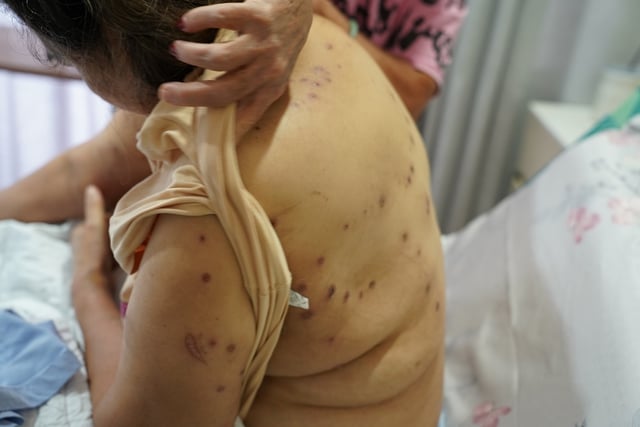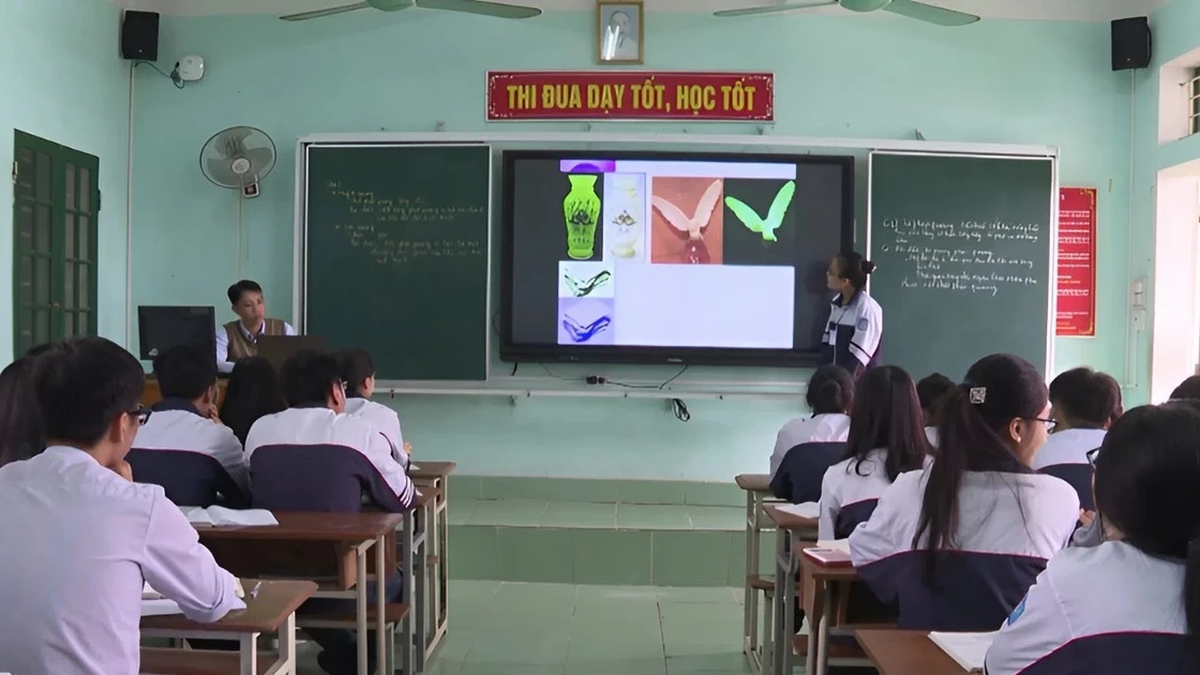The patient was taken to the emergency room at Nam Sai Gon International General Hospital about 40 minutes after being stung by a bee. Taking a medical history, the patient said that while exercising near his home, he was suddenly stung by a swarm of wasps.
On July 18, specialist doctor Lai Thanh Tan (Intensive Care - Emergency Department, Nam Saigon International General Hospital) said that the patient was admitted to the hospital in a state of grade 3 anaphylactic shock, with complications of acute liver failure, acute kidney failure, acute respiratory failure and rhabdomyolysis, which would be life-threatening if not treated promptly.
Quickly, the patient is given intensive measures such as continuous blood filtration, mechanical ventilation, multi-organ support, hemodynamic support ( medical interventions to maintain or improve a patient's blood flow and blood pressure when the circulatory system is not working effectively) and infection control.
After 10 days of intensive treatment, the patient was conscious, had the endotracheal tube removed, was transferred to a regular room and was discharged from the hospital.

Patient with bee stings all over his body
PHOTO. TH
Do not be subjective when stung by a wasp
According to Dr. Tan, the toxins from wasp venom can cause acute allergic reactions, leading to anaphylactic shock, kidney failure, hemolysis, and multiple organ failure. Especially when stung multiple times at the same time, the amount of toxins in the body can reach dangerous levels.
"Wasp stings do not simply cause pain and swelling as many people mistakenly believe. Their venom contains many strong enzymes and toxins, which can cause anaphylactic reactions, toxic shock, liver and kidney damage, blood clotting disorders and multiple organ failure, especially in people with underlying diseases such as high blood pressure, diabetes, cardiovascular disease, immunodeficiency...", Dr. Tan shared.
When stung by a bee, move away from the area immediately, do not scratch, do not squeeze the sting yourself, remove any remaining venom, wash with saline or under running water, and apply a cold compress.
"If you have difficulty breathing, dizziness, nausea, or swelling of the sting, you should go to the nearest medical facility for treatment. Timely intervention, proper protocol, and close monitoring have helped the patient escape danger and recover well," Dr. Tan shared.
Source: https://thanhnien.vn/cuu-nguoi-phu-nu-bi-ong-vo-ve-dot-70-vet-gay-soc-phan-ve-185250718110454561.htm
























![[Photo] National Assembly Chairman attends the seminar "Building and operating an international financial center and recommendations for Vietnam"](https://vphoto.vietnam.vn/thumb/1200x675/vietnam/resource/IMAGE/2025/7/28/76393436936e457db31ec84433289f72)











































































Comment (0)